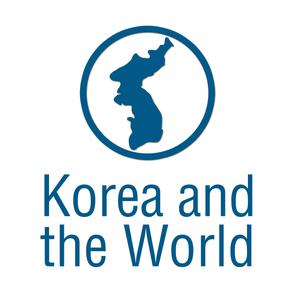
Korea and the World
Korea and the World-Team
Politics, economics and societal issues from the perspective of South Korea
- 59 minutes 52 seconds#87 - Suk-Young KimNews and discussions about technology in North Korea usually focus on the country’s nuclear programme. Often ignored, however, is the fact that, over the course of the past decade, consumer technology has also evolved. Maybe most importantly, cell phones have become increasingly widespread. They are now a common sight in the streets of Pyongyang and border cities. This is a momentous change which coincides with the emergence of a new generation, millennials, in North Korea.
To learn more about the role that technology, and especially cell phones, plays in North Korean society, we had the pleasure of interviewing Professor Suk-Young Kim. She told us about North Korean millennials and their characteristics, where North Korea stands in terms of technology, how technology and foreign media consumption interact to produce emergent trust networks among North Koreans, and why North Korea’s regime permits the spread of such a technology in the first place.
Suk-Young Kim is a Professor and Head of Theater and Performance Studies at UCLA. She received her Ph.D. in Interdisciplinary Theatre and Drama with a Certificate in Gender Studies from Northwestern University and her Ph.D. in Slavic Languages and Literature from the University of Illinois at Chicago. Her first book, Illusive Utopia: Theater, Film, and Everyday Performance in North Korea, was the winner of the 2013 James Palais Book Prize from the Association for Asian Studies. More recently, she published K-pop Live: Fans, Idols, and Multimedia Performance.
This episode was produced in cooperation and with the support of the East Asian Studies Center at The Ohio State University and its Title VI National Resource Center grant from the U.S. Department of Education. The interview was recorded on August 2nd, 2021 remotely from Columbus, OH.
25 October 2021, 12:09 pm - 55 minutes 32 seconds#86 - Stephanie Choi
One source of the success of K-Pop idols and groups, in Korea as well as abroad, can be found in their exceptionally active and dedicated fans. For many of them, being a fan goes beyond just listening their idols’ music; it also means buying and collecting merchandise, attending fan events and live recordings, or even translating appearances of their idols for global fans. These are costly endeavors, both in terms of money and time, yet they have become a hallmark of K-Pop’s fan culture.
To learn more about the relationship between K-Pop idols and their fans, we spoke to Dr. Stephanie Choi. She told us about how fans act as both promoters as well as regulators of their idols’ activities, and about the role that intimacy plays in this relationship. We also discussed the origins of fan groups in Korea and their evolution over the decades; the kinds of labor fans engage in to ensure the success of their idol; the rules dictating fans-idol interactions; and the services that idols provide in return to their fans.
Stephanie Choi is Adjunct Assistant Professor in East Asian Studies at New York University. She earned her Ph.D. in Ethnomusicology from the University of California, Santa Barbara. She also holds an M.A. in Ethnomusicology from Wesleyan University and a degree in Korean Music from Seoul National University. Interviews with Stephanie Choi have been featured in the New Yorker, NBC News, the Korea Herald, and the Korea Times, among others.
This episode was produced in cooperation and with the support of the East Asian Studies Center at The Ohio State University and its Title VI National Resource Center grant from the U.S. Department of Education.
17 August 2021, 8:06 pm - 58 minutes 46 seconds#85 - John Delury
China is a key player on the Korean peninsula: it is not only North Korea’s sole ally, but has also become South Korea’s most important trading partner. Yet, the relationship it has with both Korean states is fraught with tension. Beijing’s hold over Pyongyang has been weakening under the rule of Kim Jong-Un, and Seoul’s alliance with Washington seems to be at odds with Chinese interests.
To understand the relationships China has with both Koreas, we sat down with Professor John Delury. We talked about China’s place in the world and its evolution under the leadership of Xi Jinping, its relationship with South Korea during the Moon administration and with Kim Jong-Un’s North Korea, and about the role the United States plays in these relations.
John Delury is Professor of Chinese Studies at Yonsei University’s Graduate School of International Studies, in Seoul. He completed his undergraduate and graduate studies in History at Yale University. He wrote, together with Orville Schell, Wealth and Power: China’s Long March to the Twenty-first Century, which was published in 2013. Professor Delury’s works have appeared in various publications including Foreign Affairs, The New York Times, The Washington Post, and Asian Survey.
This episode was produced in cooperation and with the support of the East Asian Studies Center at The Ohio State University and its Title VI National Resource Center grant from the U.S. Department of Education.
2 July 2021, 2:17 am - 51 minutes 11 seconds#84 - Paul Y. Chang
The Korean family, how it functions and what it looks like, has fundamentally changed over the course of the past decades. The traditional extended family model has given way to the nuclear family and its variants; and Korean society has become more diverse with inter-ethnic marriages more common now than ever before. These changes are not only complex but also carry profound implications for the Korean society.
To learn more about these societal dynamics, we met with Professor Paul Y. Chang. We talked about the demographic revolution that is currently taking place in Korea, how the government has tried to control the nation’s fertility rate since the middle of the 20th century and the challenges it now faces as a result of its past policies.
Professor Paul Y. Chang is Associate Professor of Sociology at Harvard University. He received his PhD in Sociology from Stanford University in 2008. Professor Chang has published several book chapters and articles in various academic journals, including Mobilization, Sociological Forum, Asian Perspectives and the Journal of Korean Studies. His current project focuses on the emergence of non-traditional family structures in South Korea, including single-parent households, single-person households, and multicultural families.
23 September 2020, 9:32 am - 53 minutes 48 seconds#83 - Merose Hwang
Shamanism has a long tradition on the Korean peninsula and describes a set of ethnic religions and practices. It remains in practice to this day, yet shamanism and the role it plays in Korea have changed significantly over time. In particular, the pre-colonial and colonial era saw a drastic shift in the position it enjoyed within the Korean society.
To learn more about Shamanism during this period, we had the pleasure of interviewing Professor Merose Hwang. She told us about the origins of the word "shaman" in Korea, the Neo-Confucian critique of Shamanism, the approach the Japanese colonial government adopted regarding shamans and how these performed colonial drag.
Professor Merose Hwang is Associate Professor of History at Hiram College. She wrote her dissertation on the Coloniality of Shamanism and has since then published various articles on the topic. Professor Hwang received her PhD from the department of East Asian Studies at the University of Toronto.
25 October 2018, 7:41 am - 47 minutes 41 seconds#82 - Juhn Ahn
Introduced to Korea during the first millenia, Buddhism has a long history on the Peninsula and remains until today a major influence on the Korean society. This is nothing, however, compared to the clout it enjoyed as state religion during the Koryo period, from the 10th until the end of the 14th century. What caused the downfall of Buddhism in Korea? A popular argument is that Buddhism had become so powerful and corrupt that the state needed to suppress it.
Professor Juhn Ahn opposes this Confucian critique and we had the pleasure of interviewing him on the matter. After an overview of the current narrative, he told us about the societal shifts of the late Koryo dynasty, the problematic integration of newcomers into the Korean elite and how these factors led to the fall of Buddhism’s popularity.
Professor Juhn Ahn is Assistant Professor of Buddhist and Korean Studies at the University of Michigan. In addition to various articles on East Asian Buddhism, he also has a forthcoming book on the subject: Buddhas and Ancestors: Religion and Wealth in Fourteenth-Century Korea. Professor Ahn received his PhD in Buddhist Studies from the University of California, Berkeley.
27 March 2018, 1:24 pm - 44 minutes 17 seconds#81 - Mitchell B. Lerner
The early days of 1968 brought North Korea into the world’s headlines. Not only did Pyongyang send clandestine forces in an attempt to assassinate the South Korean President in his residence, but North Korea also attacked and captured the American ship USS Pueblo in international waters. One of the crew members died, the other 82 were imprisoned and tortured for eleven months - and released only after their government admitted that the ship was spying on North Korea.
To hear about the historical and political context of this story as well as about the details of the USS Pueblo’s capture and the fate of its crew, we spoke to Professor Mitchell Lerner. In particular, he told us about the questionable suitability of the ship for its mission and the flawed risk analysis carried out by the American government, which casts this incident as an avoidable tragedy.
Professor Mitchell B. Lerner is Associate Professor at the Department of History at The Ohio State University as well as director of the school’s Institute for Korean Studies. Aside from numerous academic articles, he wrote the book The Pueblo Incident: A Spy Ship and the Failure of American Foreign Policy, which was published in 2002. Professor Lerner received his PhD in History from the University of Texas at Austin.
10 September 2017, 7:52 am - 34 minutes 29 seconds#80 - Dong-Won Kim
Star Wars and Star Trek are among the highest-grossing movie franchises worldwide - yet they usually do not feature among the most successful films released in South Korea. This illustrates a larger trend: Science Fiction, may it be in the form of movies or books, is not particularly popular in South Korea. In contrast to that, North Korea has a rich tradition of Science Fiction.
To hear more about how the perception and role of Science Fiction differ in the two Korean states, we had the pleasure of interviewing Professor Dong-Won Kim. He told us about the conceptions of technology, society and the future that underpin Science Fiction in South and North Korea, and about how the works of Science Fiction produced in the two countries differ from each other.
Dong-Won Kim is Lecturer in Science, Technology and Society (STSC) at the University of Pennsylvania. He obtained his Bachelor degree from Seoul National University, and his Master and PhD from Harvard University's Department of the History of Science. Previously, he was Dean of the College of Cultural Science at KAIST in South Korea, visiting professor at Harvard University and the National University of Singapore as well as John Hopkins University.
26 April 2017, 10:33 am - 53 minutes 31 seconds#79 - Kyung Moon Hwang
When did Korea modernize? For many the answer lies in the colonial era. While broadly accepted, this view is not without flaws or opponents. One of these critics, Professor Kyung Moon Hwang, offers an alternative perspective. He argues that Korea's modernization is not just a result of Japanese influence. It was a rational process already started in the 19th century during the Joseon dynasty by the government.
To learn more about the modernization of the Korean peninsula, we met with Professor Hwang. He told us about the role the Joseon administration played in this process, the pivotal nature of the Gabo reforms, as well as the different rationalities that directed the development of the Korean peninsula before and during the colonial era.
Kyung Moon Hwang is Professor of History and East Asian Languages and Cultures at the University of Southern California. He obtained his Bachelor in History from the Oberlin College before pursuing graduate studies at Harvard University, where he received his PhD in East Asian Languages and Civilizations. He is the author of Rationalizing Korea – The Rise of the Modern State, 1894-1945 (University of California Press) and of A History of Korea – An Episodic Narrative (Palgrave Macmillan).
14 March 2017, 6:29 am - 42 minutes 3 seconds#78 - Robert S. Ross
As many observers argue, China’s foreign policy has become more assertive since Xi Jinping became President in 2013. The country once advocating its "peaceful rise" has stoked worries in many of its neighbors and is seen to increasingly pose a challenge towards America’s strong presence in the region. Caught in-between are the two Korean states, and especially South Korea, both in terms of its geographic location as well as its political and economic relations.
To learn more about China's recent foreign policy and the prospects for the future of the region, we had the honor of interviewing Professor Robert S. Ross. We discussed the driving forces behind China’s foreign policy; what role America wants to, should and does currently play in East Asia, and the position of the Korean Peninsula in this context.
Robert S. Ross is Professor of Political Science at Boston College, an Associate at the Fairbank Center for Chinese Studies of Harvard University, and a member of the Council on Foreign Relations. He has written extensively on Chinese security and defense policy, as well as on East Asian international relations, in several books and numerous academic articles. He received his Ph.D. in Political Science from Columbia University in 1984.
24 December 2016, 5:24 am - 1 hour 12 minutes#77 - Janet Poole
From 1910 to 1945, Japan ruled over the Korean Peninsula and tried to assimilate the Korean people into its empire. Part of this ambition was the suppression of the native language, for example by ending Korean language education and newspapers. Under these circumstances, the peninsula’s authors had to find new forms of creative expression – and despite these difficulties they produced insightful fictional works, even during the last, and most oppressive, decade of Japan’s colonial rule.
To learn more about the literature from this era, and about the conditions under which it was produced, we had the pleasure to interview Professor Janet Poole. She spoke to us about some of the authors of this period, the characteristics of their writings, and about what happened to them and the reception of their works after the colonial period.
Janet Poole is Associate Professor of East Asian Studies at the University of Toronto. Two years ago she wrote “When the Future Disappears: The Modernist Imagination in Late Colonial Korea” (Columbia University Press). Poole received her PhD in East Asian Languages and Cultures from Columbia University, her MA in Korean Literature from the University of Hawai’i at Manoa and a BA in Japanese and Korean from the University of London.
28 November 2016, 5:38 am - More Episodes? Get the App
Your feedback is valuable to us. Should you encounter any bugs, glitches, lack of functionality or other problems, please email us on [email protected] or join Moon.FM Telegram Group where you can talk directly to the dev team who are happy to answer any queries.
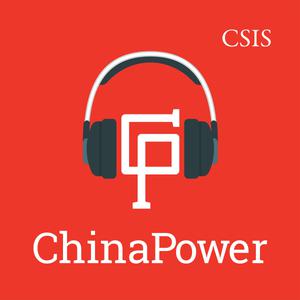 ChinaPower
ChinaPower
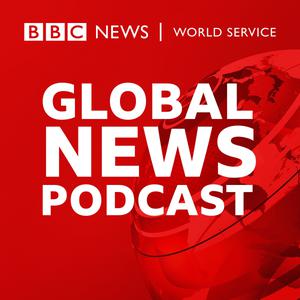 Global News Podcast
Global News Podcast
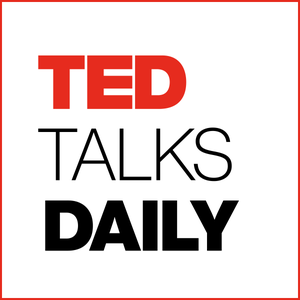 TED Talks Daily
TED Talks Daily
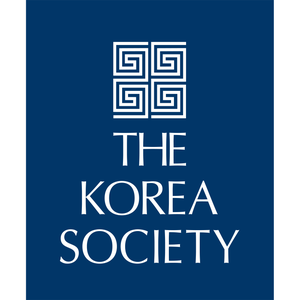 The Korea Society
The Korea Society
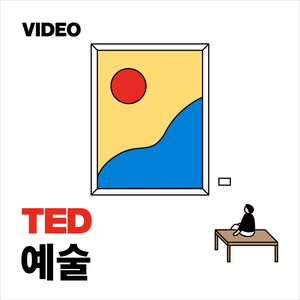 TEDTalks 예술
TEDTalks 예술
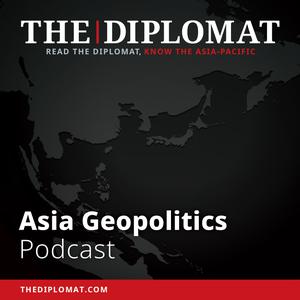 Asia Geopolitics
Asia Geopolitics